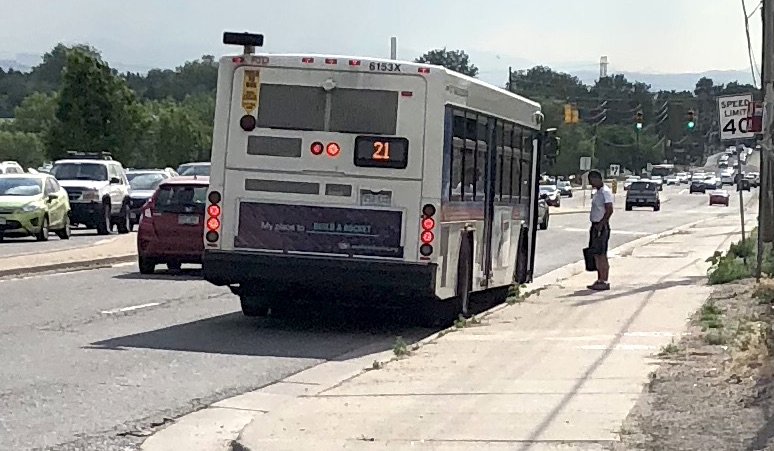Lower Fares for Low-Income Riders in Hands of RTD Board that May or May Not Approve Them
Cherry-picking from a new fare structure proposal would have rippling — and possibly crippling — effects on the RTD Board's own goals.

Will the Regional Transportation District’s Board of Directors approve a carefully constructed package of fare discounts and pass options meant to improve access to transit? Or will elected officials try to remove certain pieces and risk toppling the complex fare structure like a tower of Jenga blocks?
That’s the question in front of 15 RTD Board members, who will vote on a fare overhaul in September.
In 2016 the Board told RTD staffers to convene 25 reps from every corner of the transit district and hammer out a new fare pass program. It would have to serve lower income families but also businesses, Board members said, high school kids but also college students. Oh, and the new fare package would have to increase ridership in the process, without going over budget.
After a year of intense horse trading, complex modeling, and public input, the Pass Program Working Group came up with a suite of changes that essentially met the Board’s goals.
Please excuse the numeric soup: The fare package includes a 40 percent discount for bus and train riders who need financial help to reach their daily needs (people living at or under 185 percent of the federal poverty level) and a 70 percent discount for kids age 19 and younger.

RTD riders are already facing a probable fare increase in 2019, but to make the math work, the group recommends an increase of 40 cents, or $3 total. The EcoPass (business) and CollegePass (student) programs would get recalibrated as well, so that riders pay for the actual service they use.

RTD took that package back to the public earlier this month through a series of eight public meetings. At the Board’s request, staffers added two options to share with the public: One changed nothing. The other raised the standard fare to $2.90 and kept the 70 percent youth discount — but not the income-based discount. Instead, the current low-income program remained intact, which is capped too low to meet demand, transit advocates say. Neither options were approved by the Pass Program Working Group.
“Our position is respect the process, keep the package together,” said Mile High Connects Executive Director Jeffrey Su, who helped mold the original proposal. “It came from a diverse set of perspectives, and to piece it apart, it takes away from that process. The recommendations are not designed to be taken alone, they’re designed to work together.”
One change to the delicately balanced fare structure created by the working group would have rippling — and possibly crippling — effects on the Board’s own goals. For example, without re-balancing EcoPass pricing, there’s less money for youth and low-income discounts.
“Staff is going to continue to do what we think is the most responsible thing, which is to present to the Board that we have to consider these things as a package because they all work together,” said Michael Washington, RTD’s transit equity manager, who led the year-long talks. “There’s that factor of interdependence, and ultimately it’s in their best interest to consider the packages that we put together. They balance not only the principles that they gave us at the beginning of this study, but also the budget.”
RTD Board members are politicians who represent a range of constituents — from super dense parts of urban Denver to the rugged mountains far southwest of the city. Will members who represent less transit-dependent districts vote for low-income discounts?
District D Director Jeff Walker, who represents south Denver and its suburbs, said he’s waiting to see public comments on the proposal before making a decision. “I’m all for increasing access,” Walker said. “If there’s an overwhelming sentiment in the public to do or to not do something, that’s something good for me to consider.”
Some Board members “seem to be more inclined to go à la carte just because of the variety of opinion that they’re hearing directly from their constituency,” Washington said. “It can be taken à la carte. But not without consequences.”
Today is the last day to submit comments on the review process, though the Board will hold a public hearing closer to the vote.


